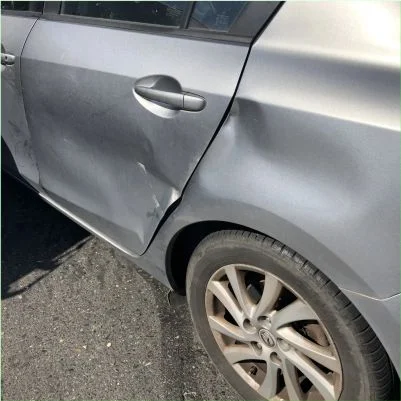
The Hidden Costs of Delaying Auto Collision Repairs
When your vehicle meets the unexpected in the form of a car accident, the aftermath can be overwhelming. Amid the flurry of emotions and logistics, it’s not uncommon to consider postponing collision repairs, thinking you can address them at a later, more convenient time. However, what might seem like a practical decision in the moment often carries unforeseen consequences. In this article, we delve into the often underestimated but critical topic: the hidden costs of delaying auto collision repairs.
You see, your vehicle’s well-being and your financial stability are closely tied to the condition of your car, even after a seemingly minor accident. That seemingly harmless dent or scrape can lead to far-reaching repercussions if left unattended. By understanding the potential pitfalls of procrastination, you can make an informed decision about the timing of your auto collision repairs. So, let’s embark on this informative journey to uncover the reasons why addressing collision damage promptly is not just a matter of convenience, but one of prudence.
Immediate Costs vs. Delayed Costs
The immediate costs of collision repairs, while substantial, are often predictable and manageable. You know what to expect in terms of deductibles, initial assessments, and repair estimates. These costs can be planned for and factored into your budget. However, the hidden costs of delaying repairs are a different story. When you put off addressing collision damage, you’re essentially postponing necessary restoration work on your vehicle. As a result, a range of unforeseen expenses can start piling up quietly in the background, and here’s how:

Structural Damage and Safety Risks: Delaying repairs can allow structural damage to worsen, compromising the overall safety of your vehicle. What might have initially been a minor issue could escalate into a serious safety concern if left unattended.
Compounding Damage: Minor damage left unresolved can lead to more extensive issues over time. For example, a small dent that exposes your vehicle’s metal to the elements can result in rust, which can spread and cause further damage.
Decreased Resale Value: Unresolved collision damage can significantly reduce the resale value of your vehicle. When you decide to sell or trade in your car down the road, you might find that its value has diminished considerably due to the lingering effects of the previous accident.
Potential Insurance Issues: Insurance companies may view delays in repairs with skepticism. They expect vehicle owners to take reasonable steps to mitigate damage promptly. Failure to do so could lead to disputes over insurance coverage or claims being denied.
Structural Damage and Safety Risks
When structural components of your vehicle, such as the frame or chassis, sustain damage, it can weaken the overall stability of your car. What might appear as a slight misalignment or a minor frame issue can have far-reaching consequences. Delaying repairs in such cases can lead to:
Compromised Safety: Vehicle structures are designed to absorb and distribute impact energy during a collision, protecting you and your passengers. If structural damage goes unaddressed, the vehicle may not perform as intended in subsequent accidents, potentially increasing the risk of injury.
Handling and Performance Issues: Structural misalignment can affect your vehicle’s handling and performance. You may notice steering problems, difficulty maintaining proper wheel alignment, or a general deterioration in driving comfort and control.
Long-Term Damage: What starts as a small structural issue can escalate over time. As your vehicle continues to operate with structural damage, stress can accumulate in other components, leading to more extensive and costly repairs down the road.
Insurance Considerations: Insurance companies often expect vehicle owners to mitigate damage promptly to prevent further issues. Delaying repairs may raise conce